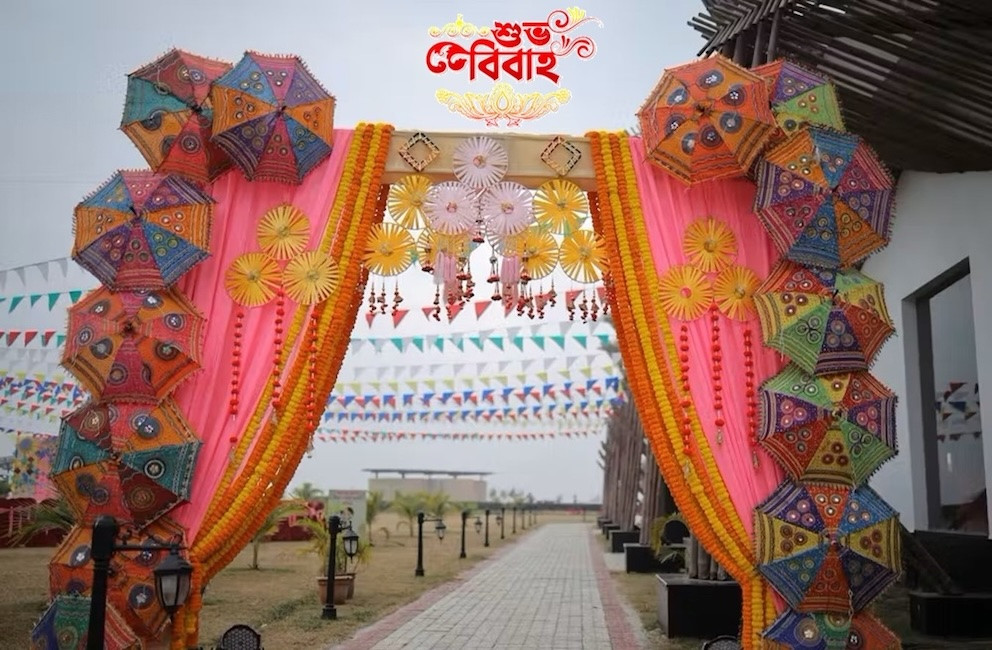
The Harmony of Faith and Tradition: A Bangladeshi Muslim Wedding
In Bangladesh, a Muslim wedding is more than just a celebration—it is a sacred union infused with cultural richness and Islamic values. The journey begins long before the wedding day, rooted in family, faith, and tradition. Unlike Western weddings, where romance often takes center stage, Bangladeshi Muslim marriages emphasize commitment, community, and divine blessing.
The Search for a Spouse: Family, Faith, and Compatibility
The process of finding a life partner in Bangladesh often begins within the family circle. Parents, relatives, and even community elders play an active role in identifying potential matches. While modern avenues like matrimonial websites and social media have gained popularity, the traditional “search for patro patri” system remains prevalent. Families prioritize religious compatibility, character, and family reputation over fleeting attractions.
Once a potential match is found, the families meet in a formal setting—usually at the bride’s home. Conversations revolve around shared values, future goals, and religious practices. Unlike love marriages, where emotions dominate, these discussions are practical yet respectful. If both sides agree, the couple moves toward engagement, a simple ceremony where rings are exchanged and prayers are offered for a blessed future.
The Sacred Kabin / Nikah: Where Two Souls Unite
The heart of a Bangladeshi Muslim wedding is the Kabin/Nikah, an Islamic marriage contract that binds the couple in the eyes of Allah. The ceremony is typically held in a mosque or at home, officiated by a Qazi or imam. The bride’s consent is paramount—whether spoken directly or through her wali (guardian). The groom then accepts the proposal in front of witnesses, sealing the union with the mandatory mahr, a gift symbolizing respect and responsibility.
Unlike extravagant Western vows, the nikah is brief yet profound. The Qazi recites verses from the Quran, emphasizing the sanctity of marriage and the rights of husband and wife. There are no dramatic declarations of love—just a solemn promise to uphold Islamic principles in their life together. Once the contract is signed, the couple is officially married, and the celebrations begin.
The Joy of Celebrations: Balancing Culture and Islam
While the nikah is a spiritual milestone, Bangladeshi weddings are also vibrant cultural affairs. The “gaye holud” (turmeric ceremony) is a beloved tradition where the bride and groom are adorned with turmeric paste for glowing skin. Relatives sing folk songs, apply mehndi, and share sweets in a festive atmosphere. However, many families now opt for gender-segregated events to maintain Islamic modesty.
The “biyer khawa”, a post-nikah feast hosted by the bride’s family. Lavish spreads of biryani, kebabs, and desserts are served, but the focus remains on gratitude and community rather than extravagance. Then the bou bhat (groom’s feast) follows, where the groom’s s family welcomes the bride’s family with another round of delicious food and lighthearted traditions.
Navigating Challenges: When Culture Clashes with Faith
Not all customs align seamlessly with Islamic teachings. Excessive dowry demands, extravagant spending, and mixed-gender dancing are common pitfalls. Many families now consciously avoid these practices, opting for simpler, more meaningful celebrations. Instead of Bollywood music, some choose nasheeds or Quran recitations. Instead of debt-ridden weddings, they prioritize affordability and gratitude.
The key is balance—honoring cultural heritage while staying true to Islamic principles. A wedding should be joyful but not wasteful, traditional but not un-Islamic. After all, the best marriages are those built on faith, not just festivity.
A Marriage That Lasts: Beyond the Wedding Day
The real journey begins after the celebrations end. In Bangladeshi culture, marriage is not just between two individuals but between two families. Respect for elders, patience in challenges, and shared faith become the foundation of a lasting bond. Couples who start their marriage with sunnah practices—praying together, seeking knowledge, and fostering kindness—often find the greatest happiness.
In the end, a Bangladeshi Muslim wedding is a beautiful tapestry of devotion and tradition. It reminds us that love is not just about fleeting emotions but about commitment, faith, and the blessings of Allah. Whether simple or grand, what matters most is that the marriage begins—and continues—with His mercy at its core.
---
Author:
Imtiaz Rehan
Dhaka
May 2025